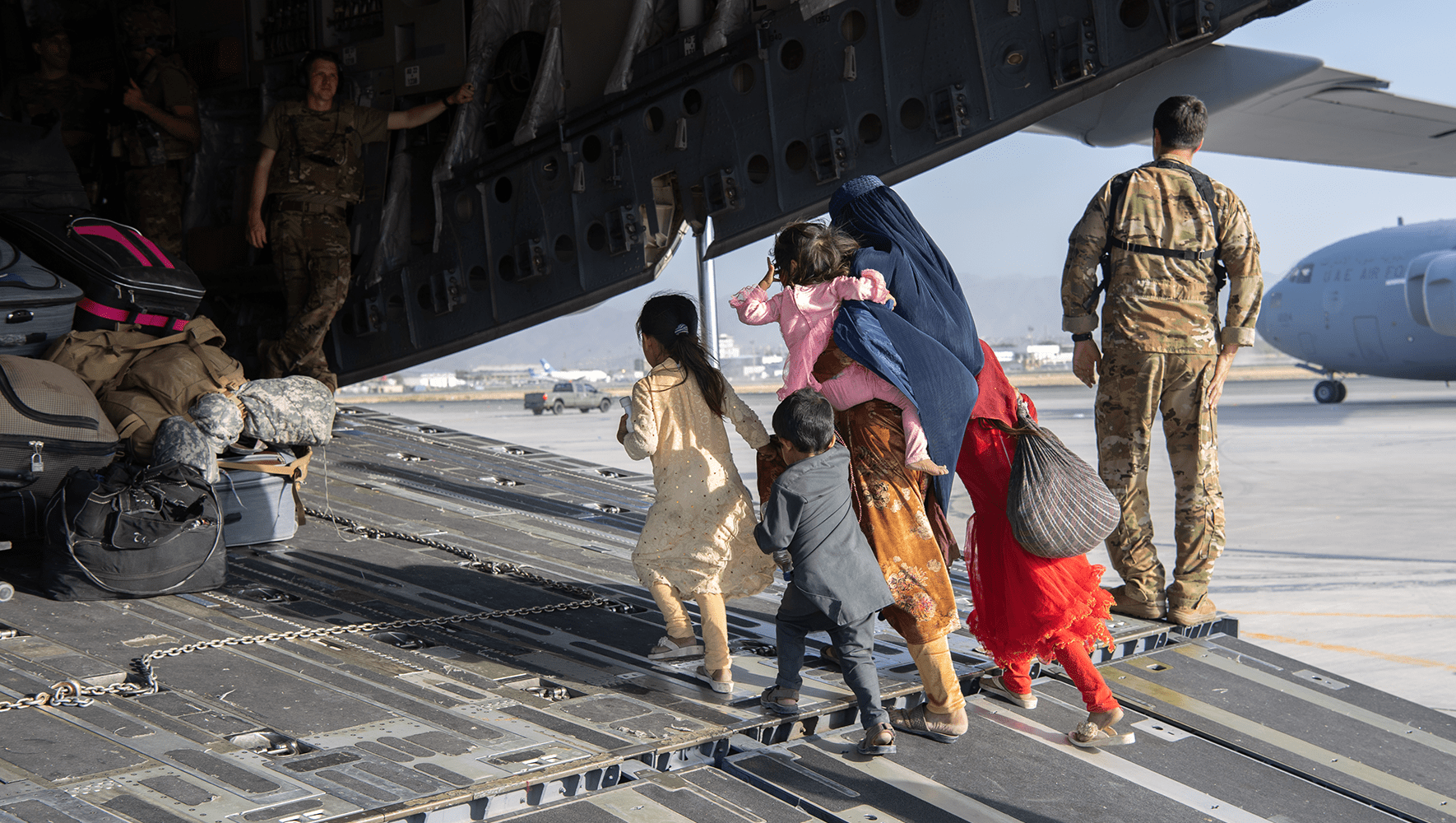
Good news may be on the horizon for Afghan evacuees who came to the U.S. following the Fall of Kabul nearly one year ago: the Afghan Adjustment Act (AAA), introduced in Congress this week, would provide a clear pathway to permanent status for those still in legal limbo.
While some Afghans who were evacuated in the wake of the Taliban takeover of Afghanistan arrived under Special Immigrant Visa (SIV) or refugee status, both of which confer a clear pathway to permanent residency in the U.S., the vast majority arrived as humanitarian parolees, a temporary status which does not provide a clear pathway to permanent residence or citizenship.
The bipartisan AAA legislation, introduced in the Senate on Sunday, August 7, and the House of Representatives on Tuesday, August 9, would allow those Afghans who arrived in the U.S. with this temporary status to apply for permanent status through a streamlined process. The legislation also expands eligibility for SIV status.
“With the first anniversary of the fall of Kabul nearly upon us, we commend House and Senate leaders for working together to find a sensible solution for Afghans associated with the United States mission who fled the Taliban in the wake of the Afghan government’s collapse,” said Melanie Nezer, HIAS’ senior vice president of Global Public Affairs, in a statement. “Without the AAA, those evacuated last summer have no assurance that they can remain in the U.S. after their parole status expires. This legislation would change that by establishing pathways to help Afghans find stability and begin to build new lives in the U.S.”
HIAS has been advocating for an Afghan Adjustment Act since shortly after the Fall of Kabul. Most of this advocacy has been in connection with Evacuate Our Allies, a coalition of veterans groups and NGOs dedicated to ensuring the evacuation and resettlement of at-risk Afghans.
Currently, humanitarian parolees are given only two years of legal status in the United States. Without a clear path to adjust their status, they must apply either for a Special Immigrant Visa or for asylum; both systems are highly complicated and severely backlogged.
“The process of seeking asylum can be lengthy and complex, and exceedingly difficult to navigate without the assistance of a specialized lawyer,” said Smita Dazzo, HIAS’ senior director for legal and asylum. “There are also Afghans who may not qualify for asylum and are only eligible for short-term solutions like Temporary Protected Status (TPS), which would just extend their time in legal limbo in the U.S.”
The Afghan Adjustment Act would create a separate, streamlined process by which evacuees could apply for an adjustment of their status, prioritizing those who might qualify for SIV status under the act’s expanded definition. Additionally, the act provides contingencies in the event that an evacuee’s parole expires before they receive a permanent status; filing for adjustment ensures a stay of any removal proceedings and continued work authorization.
The bill also provides an additional layer of vetting for evacuees during this process; evacuees will undergo the same security vetting required for all resettled through the U.S. Refugee Admissions Program, the most in-depth security checks required of any non-citizens coming to the U.S.
Though a large portion of the legislation focuses on adjusting the status of Afghans who have resettled in the U.S., the AAA calls for the establishment of a task force to provide support for Afghans outside the U.S. who may be eligible for referral to the U.S. Refugee Admissions Program or for SIV status.
While the introduction of this bipartisan, bicameral bill represents a major milestone, there’s a great deal more work to do to get the AAA passed into law. Community groups participating in HIAS’ August Advocacy Week meetings with members of Congress across the country will be speaking about why the AAA is so necessary, alongside other topics related to ensuring the rights and well-being of displaced people. Individuals can also urge their members of Congress to support the AAA here.
“There was a tremendous bipartisan movement in support of the evacuation of Afghans associated with the United States mission last August,” said Jennifer Arangio, HIAS’ senior strategist for U.S. Policy and Advocacy. “It is a natural next step to have bipartisan support for a clear legal pathway to permanent status. We are hoping for continued momentum on the AAA, and to see it pass hopefully in the continuing resolution this September.”



